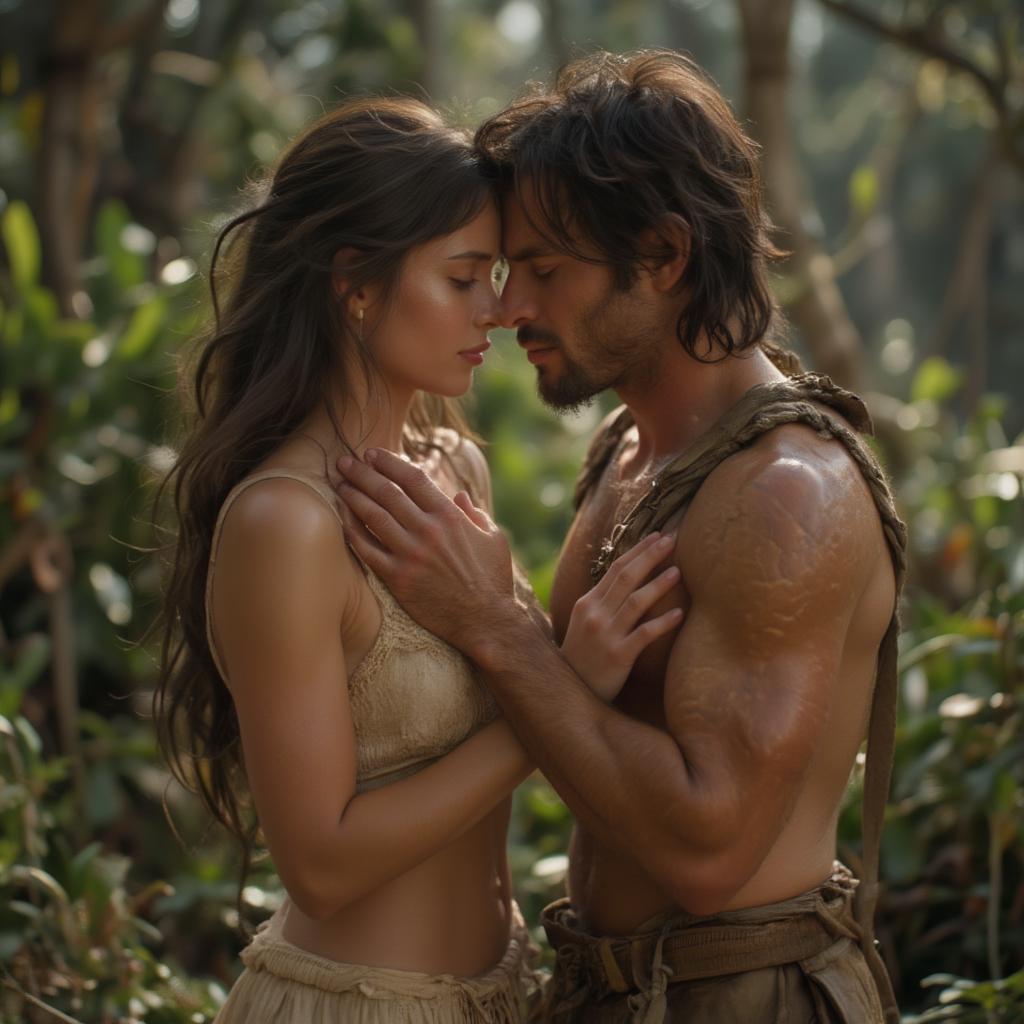The Enduring Allure of the Tarzan Movie: From Jungle King to Modern Myth

The Tarzan Movie has captivated audiences for over a century, evolving from a simple tale of a boy raised by apes into a complex exploration of nature, civilization, and what it truly means to be human. From the silent era to blockbuster hits, the legend of Tarzan continues to resonate, adapting to new generations while holding onto the core elements that have made it so iconic. This timeless appeal makes Tarzan an ever-relevant figure in popular culture.
Exploring the Evolution of the Tarzan Movie
The cinematic journey of Tarzan is a fascinating study in adaptation. Early films, such as 1918’s Tarzan of the Apes, were relatively straightforward adventure stories, showcasing the physical prowess of the character and the exotic allure of the jungle. The legendary Johnny Weissmuller’s portrayal in the 1930s defined the character for many, emphasizing the athletic Tarzan swinging through the vines with his iconic yell. These films, while often simplistic, established the essential elements of the Tarzan mythos: the orphaned child raised by apes, his extraordinary athleticism, his connection to the natural world, and his eventual interaction with “civilized” society.
As cinema evolved, so did the Tarzan movie. Later adaptations like 1984’s Greystoke: The Legend of Tarzan, Lord of the Apes aimed for a more grounded, dramatic approach, exploring the duality of Tarzan’s existence and the challenges he faced when forced to reintegrate into the world of humans. We see him struggle with his dual identity, feeling a pull between the jungle and his aristocratic background. This version delved deeper into the emotional complexities of the character. The story expanded beyond simple action and introduced themes of nature versus nurture and the consequences of societal expectations.
The Tarzan Movie’s Appeal to Different Generations
What is it about Tarzan that makes him so perennially popular? Part of his enduring appeal stems from the escapism he provides. He represents a freedom from the constraints of modern life, a return to nature and a more primal way of existence. He embodies an ideal of physical strength and agility coupled with a moral compass guided by the laws of the jungle, not the rules of society. For younger viewers, he is often seen as an exciting adventure hero, a figure who can conquer the challenges he faces with his strength and wit. Older audiences appreciate the more complex themes, reflecting on the tension between humanity and nature, and the ethical dilemmas faced when worlds collide.
“The beauty of the Tarzan story lies in its capacity to resonate on different levels,” says Dr. Evelyn Reed, a cultural anthropologist specializing in popular narratives. “It’s not just about a man swinging from vines; it’s about the human condition, the search for belonging, and our complicated relationship with the natural world.”
Key Themes Explored in the Tarzan Movie
The core themes of the Tarzan movie have remained remarkably consistent throughout its various incarnations, though each iteration often highlights different aspects. The theme of man vs. nature is always at the forefront, with Tarzan acting as a bridge between two worlds. The tension between civilization and the wild is another key component, forcing the audience to consider the costs and benefits of both. The theme of identity is also central, with Tarzan’s struggle to reconcile his dual heritage being a constant source of internal conflict. And, of course, the theme of love is often interwoven, as is seen through his relationship with Jane.

Modern Adaptations and the Future of the Tarzan Movie
The Tarzan movie has not been left behind by the changing times. Modern adaptations, such as the animated film Tarzan (1999), have embraced more complex storytelling and animation technology, providing fresh takes on the familiar tale. This particular adaptation brought more depth to the gorilla family who raised him, showing their emotional vulnerability, and gave a much richer and layered connection between Tarzan and them. Even the more recent live-action film The Legend of Tarzan (2016) sought to bring a post-civilization lens to the character and challenged his reintegration into European culture. This willingness to adapt and re-imagine the story is key to Tarzan’s ongoing popularity.
Why Does Tarzan Remain a Relevant Character Today?
In a world increasingly focused on technology and urbanization, the story of Tarzan offers a refreshing perspective. He is a symbol of freedom, of a life lived in harmony with nature, and of the possibility of finding true meaning outside of societal norms. His unwavering sense of justice, his courage in the face of adversity, and his innate connection to the natural world continue to resonate with viewers.
“Tarzan continues to captivate because he embodies the universal desire for freedom, strength, and a connection to something larger than ourselves,” notes Dr. Marcus Thorne, a film historian specializing in genre films. “His story touches upon fundamental human questions about identity, belonging, and our place in the world.”
How The Tarzan Movie Influences Other Genres
The Tarzan movie’s influence can be seen in countless films across various genres. His action sequences are frequently referenced and parodied, especially those involving swinging through the jungle. The themes of self-discovery and the clash of cultures have become staples in many coming-of-age stories, whether they’re set in the jungle or in a completely different environment. The visual language of the Tarzan movie, with its focus on lush landscapes and athletic action, has shaped how many adventure films are made, making it an enduring and significant reference point in cinematic storytelling.
What makes the Tarzan movie a great option to watch?
- Escapism: Provides a thrilling escape from everyday life.
- Action: Features exciting action sequences that can keep viewers on the edge of their seats.
- Romance: Offers a touching love story with Jane.
- Themes: Explores complex themes like identity, nature, and civilization.
- Inspiration: Presents a character that is courageous, strong, and free.
- Adaptability: It is constantly being re-imagined, meaning there is a Tarzan movie for every generation.
- Visuals: The jungle setting provides rich visual elements, making for immersive cinematic experiences.
In conclusion, the Tarzan movie, in all its various forms, continues to be a vital part of popular culture. Its enduring themes, iconic imagery, and timeless appeal ensure that the legend of the jungle king will continue to captivate audiences for generations to come. The Tarzan movie is more than just an adventure story, it is a mirror reflecting our own complicated relationship with nature, society, and ourselves.
Frequently Asked Questions About the Tarzan Movie
1. What was the first Tarzan movie ever made?
The first Tarzan movie was the 1918 silent film Tarzan of the Apes, starring Elmo Lincoln as Tarzan. This film was a relatively faithful adaptation of the Edgar Rice Burroughs novel, and set the stage for many Tarzan adaptations to come. It showcases a very rudimentary look at what would later become a popular film franchise.
2. Who is the most well-known actor to play Tarzan?
Johnny Weissmuller is widely considered the most iconic actor to portray Tarzan. He played the character in twelve films from 1932 to 1948, and his athletic physique and distinctive yell became synonymous with the role. His impact on the character remains the benchmark for many subsequent portrayals.
3. Are there any animated Tarzan movies?
Yes, the most notable animated Tarzan movie is Disney’s Tarzan (1999). This adaptation was widely praised for its beautiful animation, memorable soundtrack, and nuanced characterization. It is also a good starting point for younger audiences.
4. What are the main themes explored in Tarzan movies?
Tarzan movies often explore themes such as the conflict between nature and civilization, the importance of family, the search for one’s identity, and the power of love and compassion. The story often serves as a metaphor for our relationship with the environment and our own internal conflicts.
5. How has the character of Jane evolved across Tarzan movies?
Jane’s character has evolved from a damsel in distress in the early films to a more independent and intelligent explorer in later adaptations. This evolution reflects changing social norms and the desire for more fully realized female characters in film. She often serves as a bridge between the two worlds Tarzan inhabits.
6. Why are Tarzan movies still so popular today?
Tarzan movies still appeal to audiences due to the compelling mix of action, adventure, and romance. They also explore universally relevant themes about identity and our relationship with nature, which continue to resonate. There is also a certain nostalgic quality for many viewers that have grown up with the story.
7. Is there any truth to the story of Tarzan?
The story of Tarzan is purely fictional, created by author Edgar Rice Burroughs. While it has captivated imaginations for over a century, it is not based on real events, but the themes it explores often seem very realistic.
8. How do modern Tarzan movies differ from older ones?
Modern Tarzan movies often delve into more complex themes and character development, moving away from the simpler adventure stories of the past. They also tend to employ more advanced visual effects and try to present a more nuanced representation of the jungle.
9. What makes Tarzan different from other heroes in popular culture?
Tarzan’s unique origin story, his blend of human and animal traits, and his unwavering connection to the natural world set him apart from most other heroes. He’s a man in touch with his primal instincts, with an unusual upbringing and life journey, making him a truly distinct icon.



